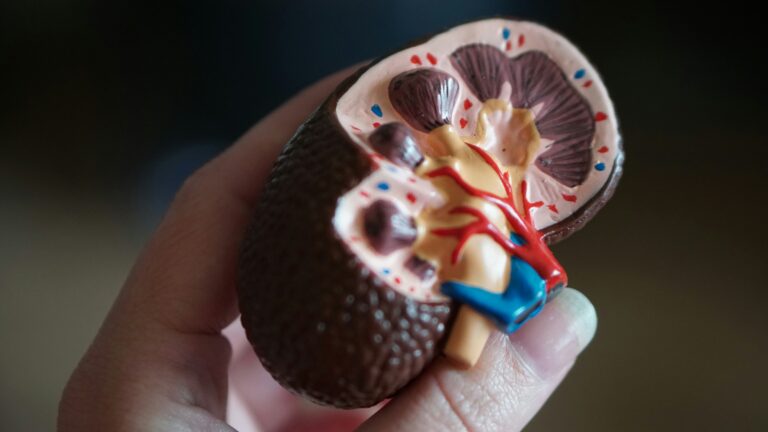Kidneys and their function: A brief overview for your health
The kidneys are one of the most important organs in our body and play a crucial role in our health. Although they often work in the background, they are essential for the proper functioning of our body. In this article, we take a look at the main functions of the kidneys and explain why it is so important to pay attention to kidney health.
What do the kidneys do?
The kidneys are two bean-shaped organs located on either side of the spine, just below the rib cage. Their primary function is to filter the blood and remove waste products and excess water from the body. This process produces urine, which is excreted through the urinary tract. A single kidney is capable of filtering up to 150 liters of blood per day, demonstrating how intensive and important their work is.
The main functions of the kidneys
Detoxification of the body:
The kidneys filter waste products, toxins, and excess fluids from the blood, thus ensuring the body’s detoxification. This is crucial for maintaining the balance of various chemical substances in the body.Regulation of fluid and electrolyte balance:
The kidneys regulate the body’s fluid balance by excreting excess water or retaining it when the body is dehydrated. At the same time, they ensure the correct balance of electrolytes such as sodium, potassium, and calcium, which are essential for nerve and muscle function.Blood pressure control:
The kidneys play a key role in regulating blood pressure by releasing hormones that can raise or lower blood pressure. An imbalance in kidney function can therefore lead to high blood pressure or other cardiovascular problems.Hormone production:
The kidneys produce important hormones such as erythropoietin, which stimulates red blood cell production, and renin, which regulates blood pressure. These hormones are essential for the proper functioning of the body.

Why kidney health is important
Healthy kidneys are essential for overall well-being. When the kidneys stop functioning properly, it can lead to a buildup of toxins and excess fluid in the body, causing serious health problems. Signs of kidney problems can include swelling, fatigue, high blood pressure, and changes in urine. Therefore, it’s important to regularly check your kidney health and look out for warning signs.
Tips for caring for your kidneys
Drink enough water:
Adequate fluid intake helps the kidneys efficiently remove waste from the body.Healthy diet:
A balanced diet low in salt and sugar but rich in fruits and vegetables can support kidney function and reduce the risk of kidney disease.Regular exercise:
Physical activity contributes to overall health and can help control blood pressure, which in turn reduces strain on the kidneys.Avoid excessive alcohol consumption and smoking:
These habits can impair kidney function and should therefore be avoided.
Conclusion
The kidneys are small but powerful organs essential for maintaining health and well-being. Caring for your kidneys can ensure your body functions at its best. Maintaining a healthy lifestyle and always consulting a doctor with any concerns will help keep your kidneys in top shape.
